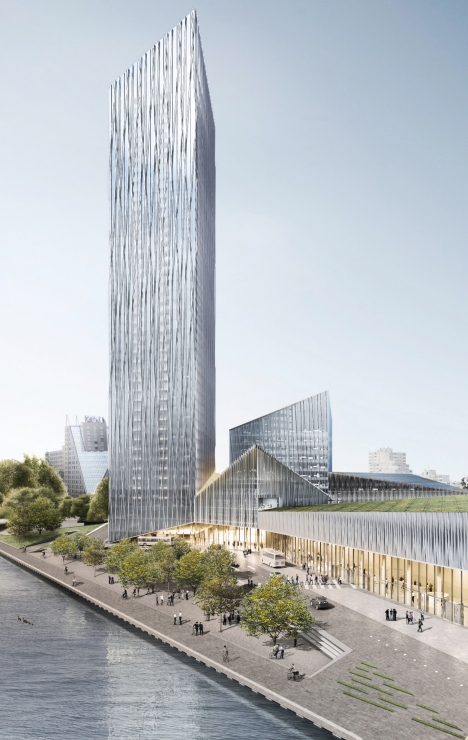Berlin hotels are making steady profits, but will an imminent onslaught of new supply sour performance?
The city's hotels recorded an 8-percent year-on-year increase in total revenue in April that, combined with cost-cutting, fueled a 29-percent increase in profit per room, according to recent data from profit and loss benchmark service HotStats.
Since the German capital is a consistent high performer, developers are now eager to profit—and a total of 8,300 rooms are due to open in the next two years, dependent on demand from both leisure and corporate travelers.
HotStats said that the growth in total revenue in March was primarily a result of a 7-percent increase in revenue per available room, as hotels there achieved growth in both occupancy—up 1.4 percentage points—and average room rate up 5.0 percent to €147.83.
The results are the latest in a strong line for Berlin, which has delivered a CAGR in RevPAR of 4.4 percent over the last five years. According to PwC, RevPAR is expected to grow by 3.1 percent this year.
“If you look at the numbers, there are two significant aspects: increased supply and strong and constant increase in demand," said Detlef Kaiser, director of hotel investment, Germany & EMEA, Colliers International. “All the statistics say that we have a certain number of new contracts coming into the market and they ask whether the market can take the new supply. No one looks at how many private hotels are leaving the market, because they are not leaving the market with a big bang, they are leaving in silence. You will see that the total number of hotels is almost constant. What we do have is a change in operations of hotels; we have more franchises and more operators."
But are owners and developers investing in the wrong asset class? According to Kaiser, maybe. “What is limiting the growth of the hotel market is the residential market. We have a huge demand for new units—it’s almost more profitable for an owner than a hotel.”
Openings
The data come as Motel One opened its 582-room Berlin-Upper West hotel. Joining the Motel One this year will be the largest Hampton by Hilton hotel in the world, the Berlin City Centre Alexanderplatz, which is due to open in May with 344 rooms over nine floors.
Scale is a continued theme. The largest hotel in Berlin, the 1,125-room Hotel Estrel, is also set to become the city's tallest, adding an additional 575-foot tower with 814 rooms.

Trending Up
In 2016, the German hotel industry achieved a new record high with regards to overnight stays, while RevPAR increased by 3.4 percent, in excess of the overall 1.9-percent GDP growth, according to a study by Christie & Co.
The report found that, since 2011, the number of hotels and B&Bs grew by 0.9 percent per year and the number of beds by 2.7 percent per year., corresponding to a total growth of 4.5 percent and 14.3 percent, respectively.
Seventy-nine percent of all guestrooms were branded, with AccorHotels the market leader, offering 14 percent of all branded guestrooms, followed by IHG with 7 percent.
The four-star segment has the highest volume in rooms accounting for 49 percent and more than 30 hotel projects are due to add around 8,300 guest rooms to local supply within the next two years.
This new supply looks likely to be filled. Despite a terrorist attack in November last year, PwC said: “Berlin is increasingly attractive as a tourist destination and a magnet for new hotels and business conferences, especially in the start-up arena. Berlin reached a landmark 30 million overnight stays already in 2015 and 40 million stays in the medium term is considered realistic.”
Commenting on the impact of Airbnb, which has been curtailed in Berlin by a ban on renting out whole apartments, Colliers' Kaiser said there had been none. "I don’t know any hotel which fears Airbnb. The guest who wants to stay in Berlin for two weeks has not stayed in a hotel in the past and will not stay in the future. Airbnb is in the market, but as a competitor of long stay, which is 10 percent of the market. And 10 percent of 10 percent is not very much.
“Airbnb is important, but in a technical sense, they are showing what opportunities there are digitally.”
Katherine Doggrell is an editor at Hotel Analyst, the U.K.-based news analysis service for hotel investors.
